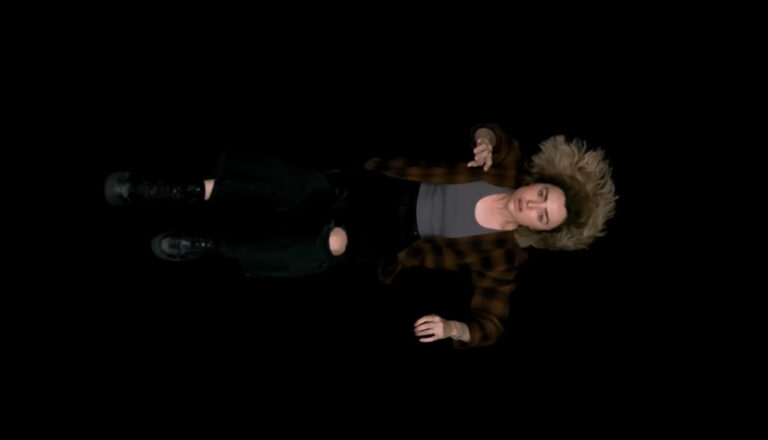
School Spirits
Don’t be fooled by the show’s teenage characters. Parents would be advised not to let their own teens be haunted by its content.
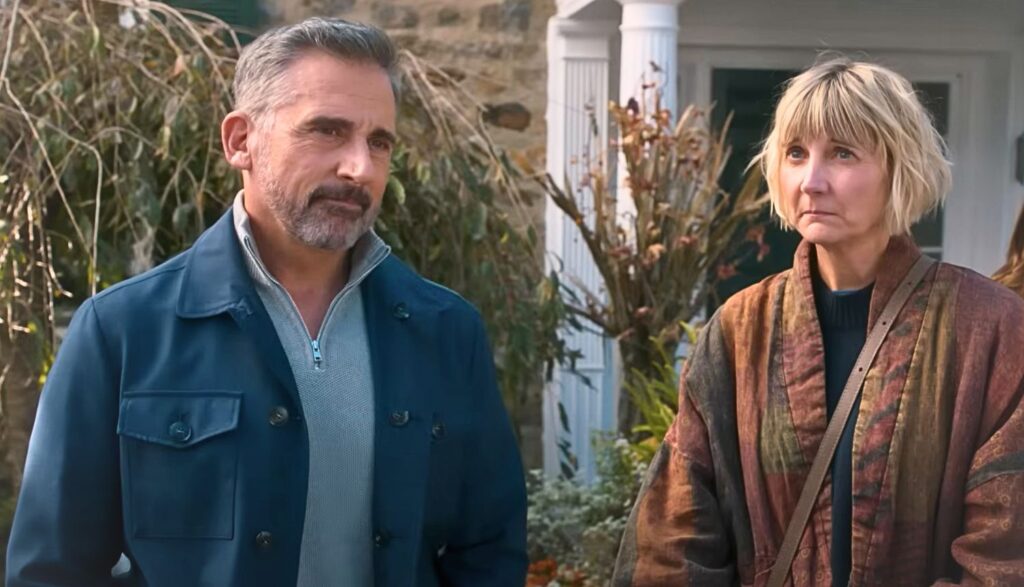
Let’s go back in time to when The Four Seasons first released. No, not that concerti by Antonio Vivaldi. Or the band led by Frankie Valli. I’m talking about Alan Alda’s 1981 romantic comedy.
That film featured three couples who come together each season for a reunion and vacation. Season after season, Nick and Anne, Jack and Kate, Danny and Claudia would celebrate their marriages and friendship. That is, until Nick throws a wrench into everything by divorcing Anne and then later inviting his far-younger girlfriend, Ginny, to join the excursions.
That’s generally the same in this TV remake of the film, albeit with a few plot differences. It also comes with a pandering modern twist: Danny and Claudia are now Danny and Claude, two gay men in an open relationship with other men (a choice we see them pursue occasionally).
To be fair, The Four Seasons grapples with the difficulties of maintaining a marriage when that honeymoon phase has long-since ended. It understands, to a very secular extent, that love is often a commitment more than a feeling—even if that commitment is a beautiful thing. The story reminds us that breaking the covenant we’ve made with our spouse often creates ripples that hurt other people. And as Tina Fey’s Kate and Will Forte’s Jack struggle to make their own relationship work while watching their friend’s marriage crumble, there are some sweet moments to be had.
That said, there are more moments that remind us why this show is worthy of the “irreverent” tag with which Netflix labels it: in the show’s fourth episode, we see pornography on a TV screen featuring a man and woman having sex (and the woman’s chest is exposed to us). Additionally, heterosexual and homosexual sex is often alluded to or heard, and in a couple instances, seen. We see some male rear nudity and characters clothed in underwear. Harsh language is frequent, and drug use pops up, too.
The Four Seasons correctly asserts marriage is a commitment, even if it approaches that idea with a very low view of the sanctity of the marital union. Every married couple will be forced to deal with some tough moments. Those content issues in The Four Seasons, however, only make it more difficult to watch.
(Editor’s Note: Plugged In is rarely able to watch every episode of a given series for review. As such, there’s always a chance that you might see a problem that we didn’t. If you notice content that you feel should be included in our review, send us an email at letters@pluggedin.com, or contact us via Facebook or Instagram, and be sure to let us know the episode number, title and season so that we can check it out.)
Three couples reunite for an outing at a lake house. However, things take an unexpected turn when Nick confesses that he’s thinking about getting a divorce.
Danny and Claude are gay, and they’re in an open relationship. Someone says that he thinks humans are just “animals who love to rub their crotches on things.” There’s a reference to pornography. When talking to Nick about his desire to get a divorce, Danny tells Nick he should cheat on his wife to make him somehow rediscover his affections for her. One character recalls a store that had a picture of a naked woman on the front. A man and woman kiss passionately, and we later find them under bedsheets (presumably unclothed). Someone chides them for having sex in another person’s home. Two men kiss.
People drink wine and beer, and someone confesses to being inebriated. A shirt slogan jokes about getting tipsy.
Anne refuses to buy from a bagel shop because “it’s run by Protestants.” Someone mentions yoga. There’s a reference to Mary, the mother of God.
We hear the f-word about 10 times and the s-word three times. “A–” is used once. God’s name is taken in vain eight times, and Jesus’ name is misused once. Someone uses a crude hand gesture.

Kennedy Unthank studied journalism at the University of Missouri. He knew he wanted to write for a living when he won a contest for “best fantasy story” while in the 4th grade. What he didn’t know at the time, however, was that he was the only person to submit a story. Regardless, the seed was planted. Kennedy collects and plays board games in his free time, and he loves to talk about biblical apologetics. He’s also an avid cook. He thinks the ending of Lost “wasn’t that bad.”

Don’t be fooled by the show’s teenage characters. Parents would be advised not to let their own teens be haunted by its content.
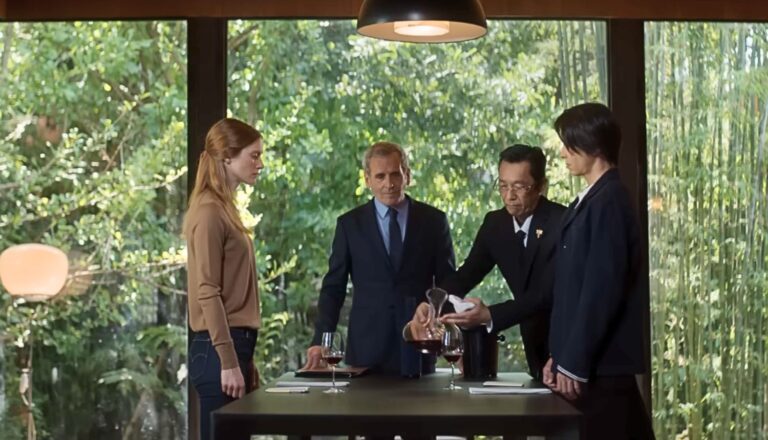
‘Drops of God’ focuses on a wine-centric competition, and it comes with notes of sexual content and some crude language, too.
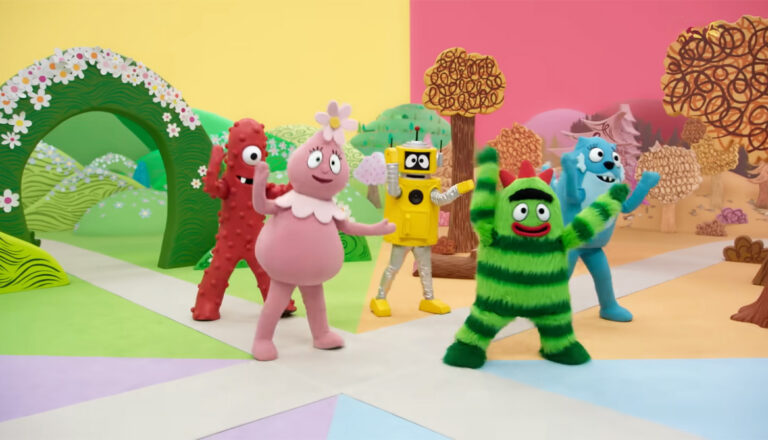
Apple TV+ welcomes preschoolers to Yo Gabba GabbaLand—though parents may want to note the show’s references to magic.
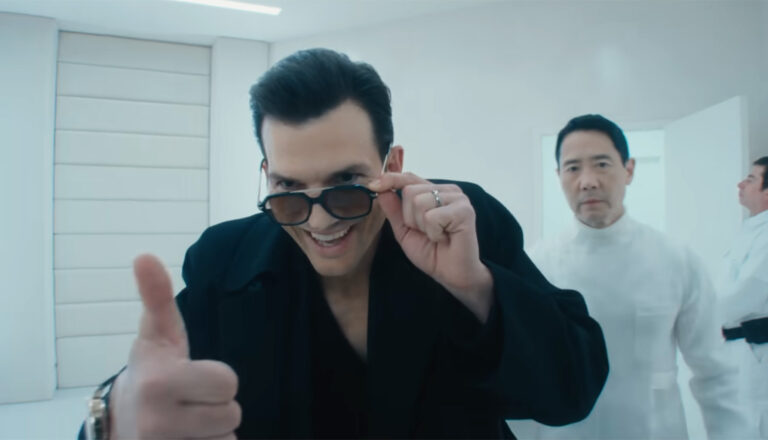
FX’s ‘The Beauty’ will certainly make its viewers think about beauty and vanity, but so many ghastly content concerns make this an ugly show.